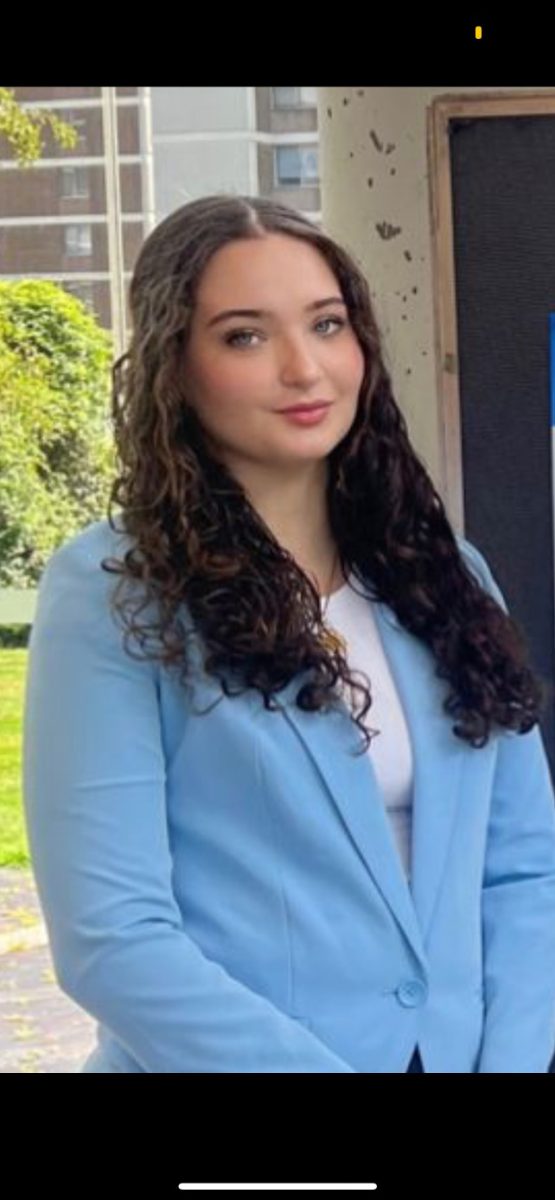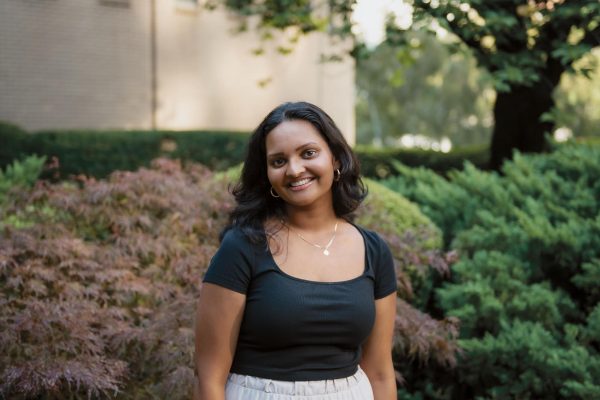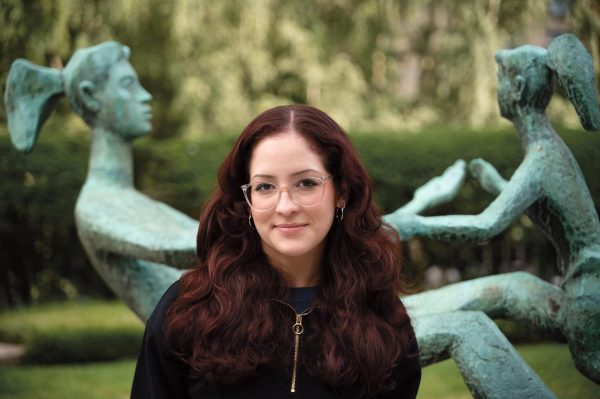United Student Government at Lincoln Center (USGLC) elections for the 2023-24 academic year were held on Monday, Oct. 23 at around 2:30 p.m. and closed the following day on Tuesday, Oct. 24 at 5 p.m. There were 12 available positions in this election cycle, of which nine were filled.
The Office for Student Involvement announced available positions and elections in an email on Oct. 5. USGLC announced the election results on Oct. 24 through a post on the Instagram account @fordhamusglc, detailing the rosters for each position as well as the votes each candidate received.
The USGLC elections exhibited a low voter turnout, which has been a consistent pattern over the years. The vice president, chair of facilities, chair of student affairs and secretary elections garnered over 180 votes each, representing approximately 6% of the total student body population at the Lincoln Center campus. The position with the most votes cast was the first-year senator position, which collected 365 votes. The GSBLC first-year senator position collected 28, and the senior senator position collected 13.
Fiona Shehu, Fordham College at Lincoln Center (FCLC) ’25 and vice president-elect of USGLC, said that she decided to run for the vacant vice presidency because she believed the position was an integral part of USGLC. She added that she felt the vice president would provide helpful auxiliary support in terms of sorting through logistics and correspondence within USGLC.
Additionally, following her role in kickstarting two humanitarian relief fundraisers as the former chair of the humanitarian committee over the summer alongside USGLC President Tanzema Qureshi, FCLC ’24, Shehu wanted to increase her involvement with different USGLC committees.
“It was a matter of interest to me, whether it’s the committee of sexual misconduct, facilities, affairs or my own committee I was running, it just felt right,” she said.
The following positions, which included vacancies in the secretary and chair positions were also elected: Daphne Mei, FCLC ’26, was elected secretary; Rachita Mehta, FCLC ’24, was elected chair of student affairs; and Isabella Casano, FCLC ’25, was elected as chair of facilities.
“It was just really important for me to assure the student body that I’m there to represent them and help them in any way that I possibly can.”Fiona Shehu, FCLC ’25
Several senatorial positions were also filled in the election cycle, ranging across all four undergraduate grades. Annabel Kinsey, Annarosa Lam and Samirali Kristeen, all FCLC ’27, were elected to serve as first-year senators for FCLC; Hannah Huang, Gabelli School of Business at Lincoln Center (GSBLC) ’27, was elected as the GSBLC first-year senator; and Emely Sosa, FCLC ’23, was elected as the senior senator for FCLC.
Mei shared that while briefly serving as sophomore senator, she felt inspired to assume a more “impactful” role within the organization, which prompted her to run for the position of secretary.
She expressed that her goal as secretary is to introduce initiatives which improve communication between student government and students at Lincoln Center. Mei adds that this effort encompasses providing regular updates on USGLC activities, hosting open forums to garner student feedback, and initiatives to engage more students in decision-making processes.
“I am a firm believer that by nurturing a transparent and inclusive environment, we can establish a student government that authentically represents the diverse needs and aspirations of our student body,” Mei said.
Shehu echoed a similar sentiment and added that she has heard students express that they feel underrepresented, and wants to work toward making communities at Fordham feel heard and appreciated.
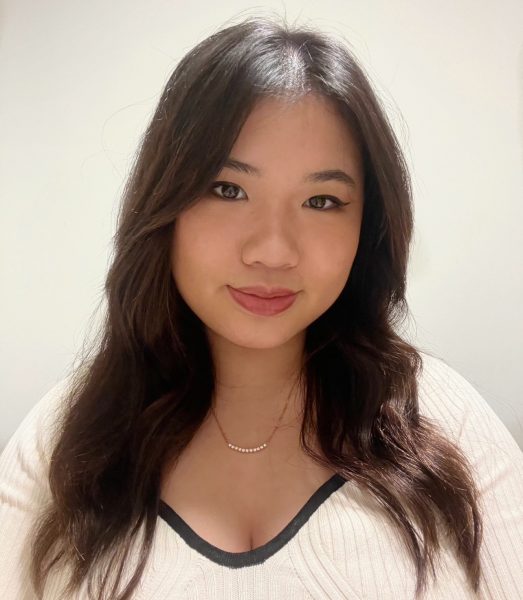
“My strategy was just to be authentic and only because it was just really important for me to assure the student body that I’m there to represent them and help them in any way that I possibly can,” the vice president-elect said.
Elected as a first-year senator, Kristeen said that she ran for office because she wants to have a lasting impact on spaces she is involved in. She added that she enjoys being an active member of the community and felt that running for a senate position would immerse her into Fordham.
“Being a productive member of this university means a lot to me and I’ll always do my best to be a voice for those who feel they do not have one,” she said.
Kristeen added that her priorities as senator will include being equally dedicated to both commuter and resident students. She noted that she hopes to spend the year bridging the gap between residents and commuters, with practices that will outlast her time in the senator position. She describes what is a “distinct” divide between the two groups that can leave commuters feeling ostracized.
In regard to resident students, Kristeen said she also wants to voice their concerns due to high on-campus living costs.
“If students moved across the country to pay thousands of dollars a year, they should have everything they are paying for.”
Hoping to focus on improving commuter resources and class offerings, Sosa was the sole runner and winner of the open senior senator position. Sosa, who is a commuter herself, said it can be hard for students to feel like they are a part of the university community without sufficient resources available to them.
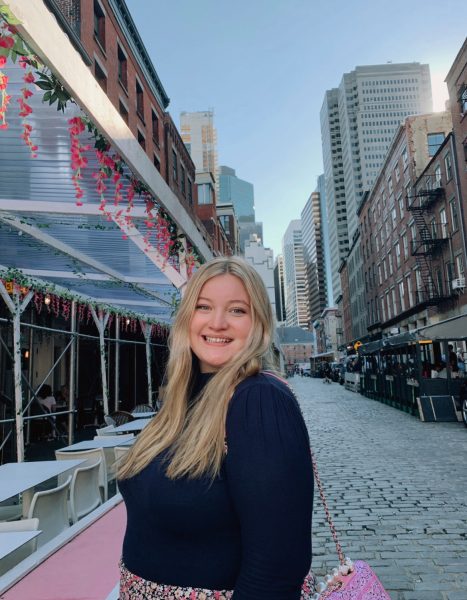
The newly elected senior senator for FCLC pointed to lounge and designated study areas as areas of needed improvement and described that they lack comfortability and space in comparison to those at the Rose Hill campus. Sosa hopes to influence the university’s investment in the commuter experience at Lincoln Center during her time as a senator.
“I don’t see the same investment in making the spaces at LC the same,” Sosa said. “And if you have been to both campuses, then you can really tell the difference.”
Sosa added that she has had positive interactions with members of USGLC so far and believes the team will work well together. She emphasized that she is determined, approachable and easily accessible to the student body.
“I can talk to people and just make them feel like they’re being heard and listened to,” she said.
The following positions, which included vacancies in the secretary and chair positions were also elected: Daphne Mei, FCLC ’26, was elected secretary; Rachita Mehta, FCLC ’24, was elected chair of student affairs; and Isabella Casano, FCLC ’25, was elected as chair of facilities.
Differences in the amount of course offerings for majors such as political science across the Rose Hill and Lincoln Center campuses are another issue of interest for Sosa. She noted that within her major, political science, students often have to take classes at the Rose Hill campus because course offerings at the Lincoln Center campus are too limited. While Sosa questions whether this might be an administrative issue, she wants to address it regardless.
“Maybe changes will not be seen by the time I graduate but will definitely continue to post my time at Fordham,” Sosa said.
The elected chair of student affairs, Mehta, previously served as a sophomore senator for FCLC and chair of operations during her junior year at Fordham. She shared that because USG represents the student population and their values, it is the student government’s responsibility to make sure that students feel both safe and welcomed.
Mehta added that she hopes to organize events that are memorable for students and reflect a positive experience at Fordham.
“I want to try to pull out all the stops I can in line with Fordham’s budget and restrictions hopefully,” she said. “I want to create a community where people can engage, communicate, and feel satisfied this year and have a good experience.”
Elected to the chair of facilities position, Casano shared that one of her goals is to improve the student experience on campus. She conducted most of her campaigning through social media on Instagram by interacting with prospective voters and highlighting her goals should she be elected for the positions.
Casano expressed her desire to increase involvement within USGLC and for more Lincoln Center students to become active members of the organization.
“I plan to work with students and take their feedback seriously to implement the change needed to make facilities on campus the best it can be,” she said.

